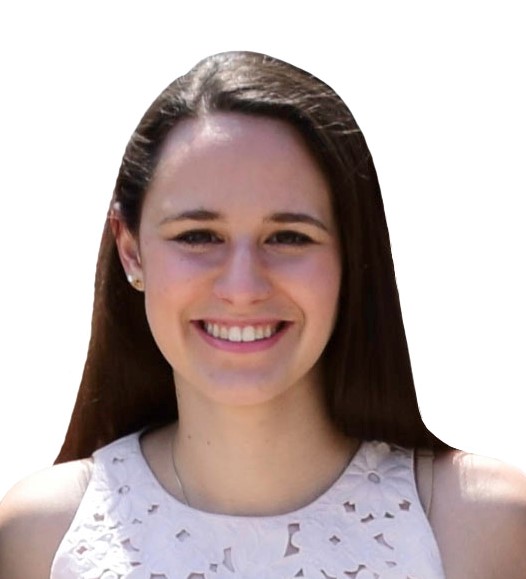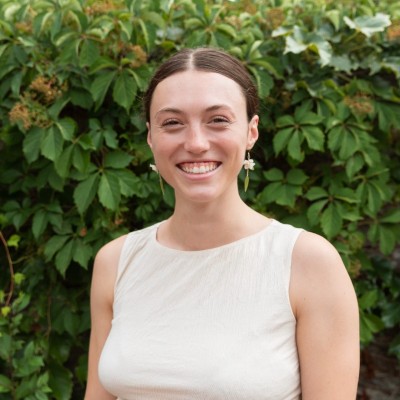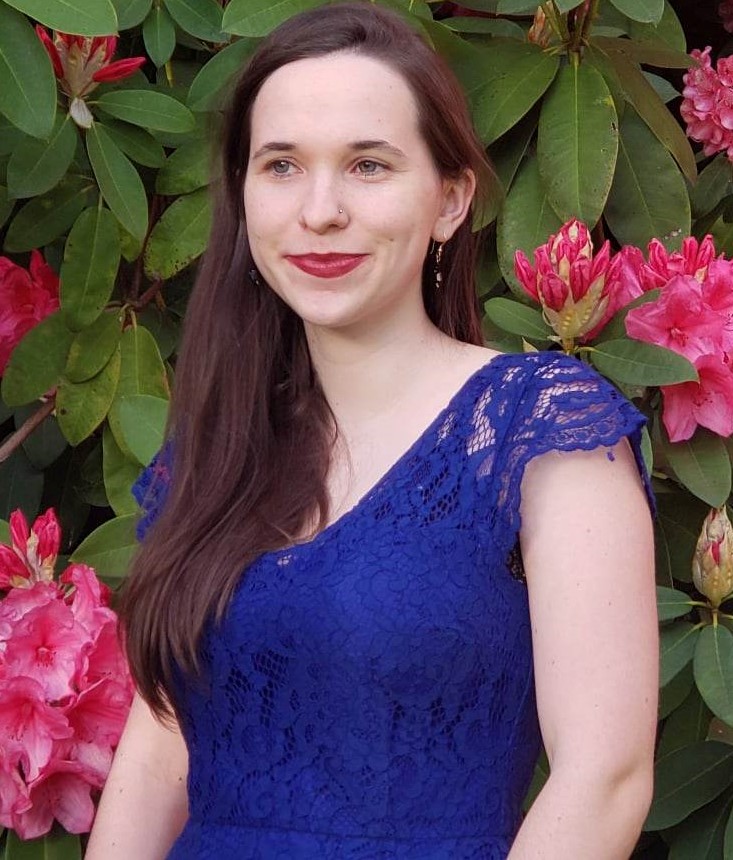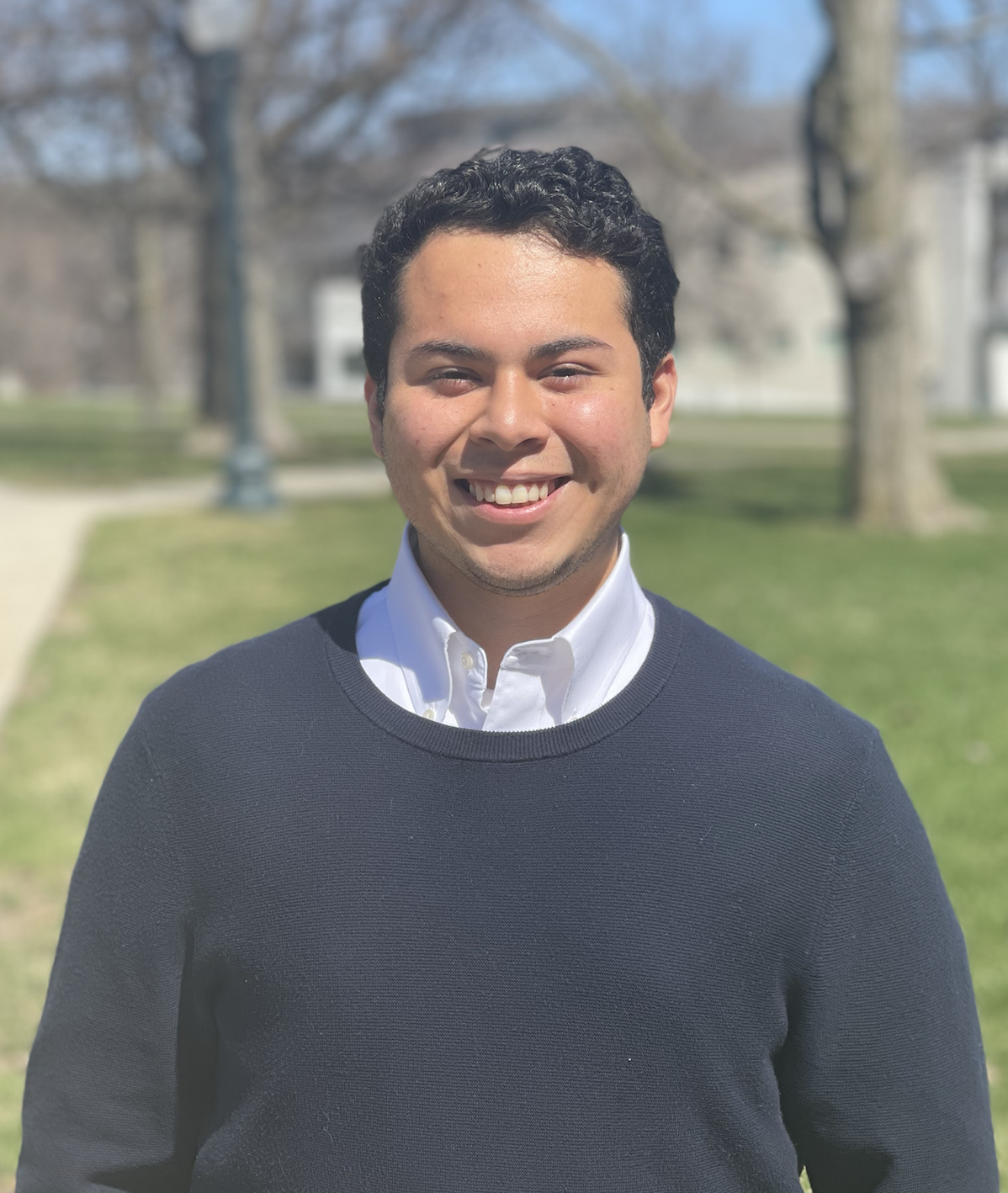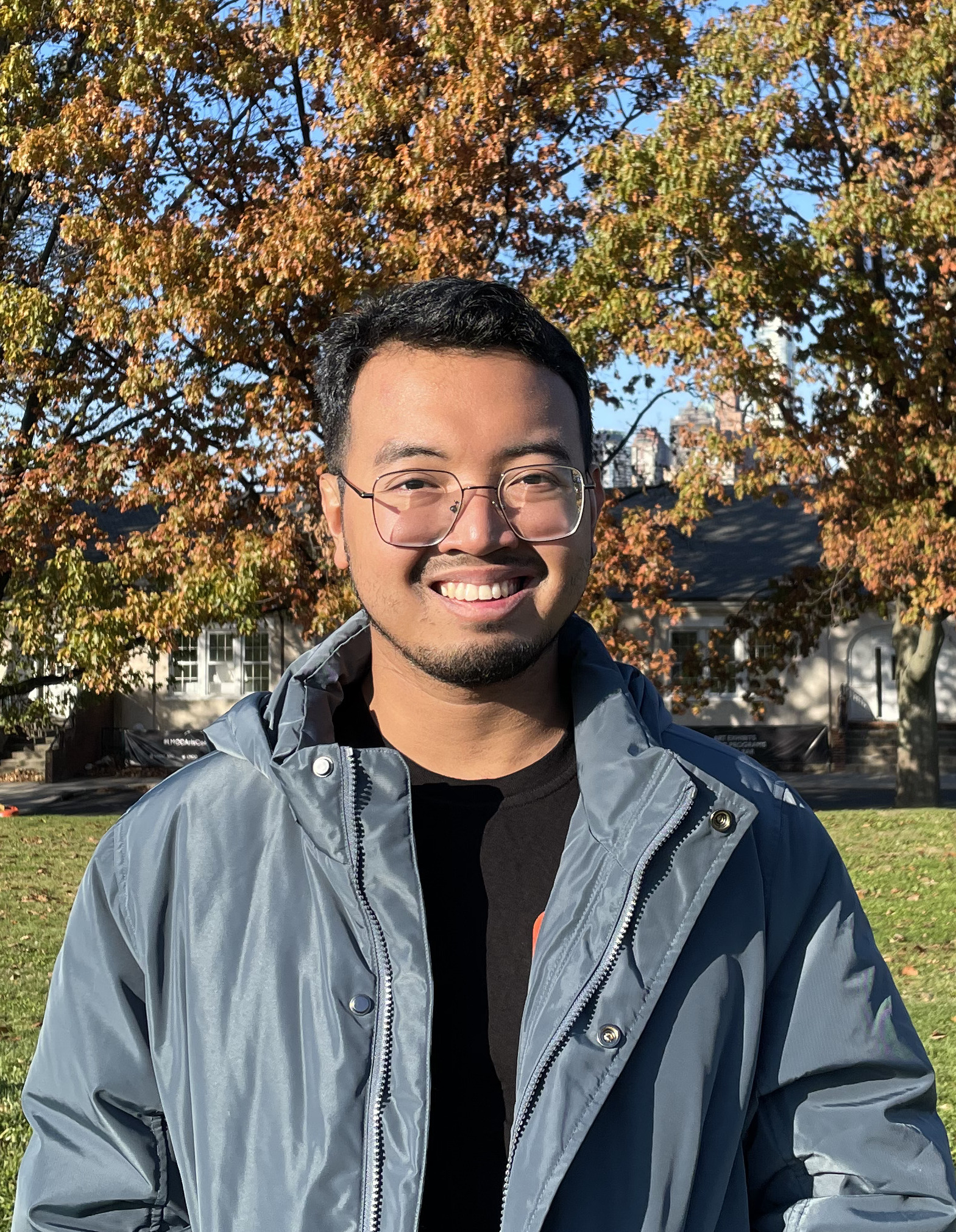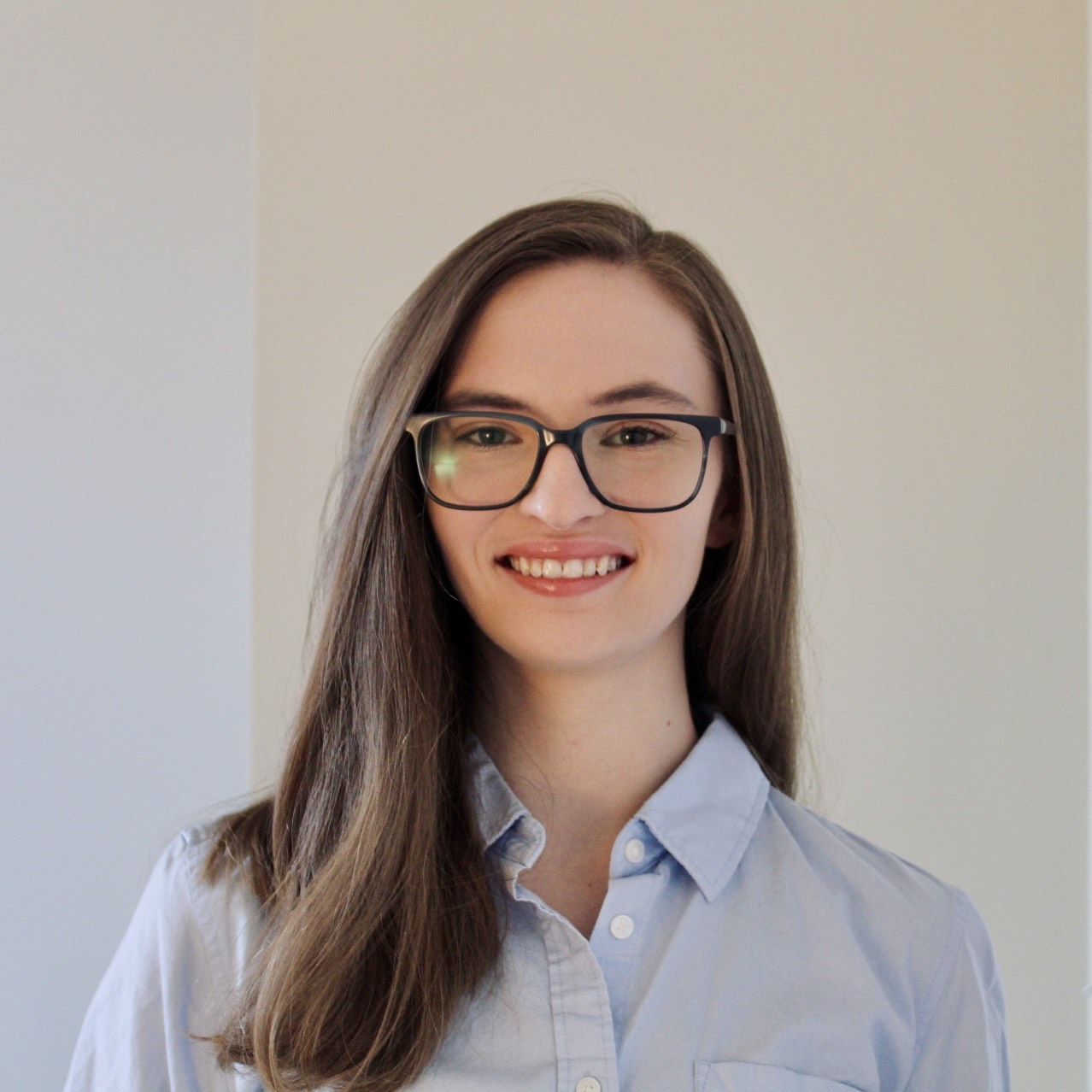Meet Our Doctoral Students
We are delighted to announce the launch of our new online profiles for Doctoral Students at Teachers College.
If you are a currently enrolled doctoral student at Teachers College, please visit the profile submission page for more information on how you can create your own profile.
Meet Our Master's Students
Morgan Barney is an M.A. candidate in the Economics and Education program at Teacher’s College, Columbia University. She also holds a B.A. in Economics and a Concentration in Global Financial Institutions from Smith College. As an undergrad, Morgan worked as a Research Assistant on an early-stage research project on European Fiscal Policy with prior Irish Fiscal Advisory Council Member, Dr. Roisin O’Sullivan, and on the forthcoming Intermediate Microeconomics textbook, Microeconomics: Competition, Conflict and Coordination by Drs. Samuel Bowles and Simon Halliday.
Prior to joining Teacher’s College, Morgan spent a year working on Wall Street as an Investment Banking Analyst in an Equity Capital Markets Group before deciding to pursue her long-term interest in economic research involving educational inequities and broader inequality. To reorient her career to pursue this interest, Morgan decided to spend a year in service as an AmeriCorps Education Fellow at an innovative urban public school in Central Falls, RI. Her goal was to both witness and help address some of the issues in which she was interested in researching firsthand, especially as they had been exacerbated by the pandemic. Morgan hopes to eventually use her degree and prior classroom experiences to conduct thoughtful and policy-oriented research exploring how the education system can be used to combat and correct for pervasive poverty and other systemic inequities.
In her spare time, Morgan enjoys listening to music, painting, and playing tennis.
Ruby Franzen is an M.A. candidate in the Economics and Education Program at Teachers College, Columbia University. She earned her Bachelor of Science from the University of San Francisco, double majoring in economics and international studies, with a minor in European Studies.
Before joining Teachers College, Ruby worked at The Hechinger Report, a nonprofit newsroom that focuses on innovation and inequality in education. She continues to work there full-time, contributing to the maintenance, operation, and expansion of their membership and sponsorship programs.
In addition to her academic and professional pursuits, Ruby founded Pass Down The Gown, a nonprofit that offers free prom dress rentals to high school students. Motivated by her own prom experience, she started this initiative in 2017 to provide sustainable and accessible options for prom-goers.
Ruby has dedicated much of her life to supporting students, whether as a student herself, in her professional roles, or through her nonprofit work. She aims to use her M.A. studies to understand economic strategies that can improve college outcomes and career opportunities for low-income students in the U.S.
Outside of work and studies, Ruby enjoys reading and visiting her family in Minnesota.
Anthea Guthrie-Honea is an M.A Candidate in the Economics and Education program at Teachers College, Columbia University. She earned a B.A in economics with a minor in sociology at Scripps College.
Prior to attending Teachers College, Anthea spent two years working for AmeriCorps in Milwaukee working as a college access coach for College Possible where she helped students from low-income backgrounds apply to college.
Anthea hopes to combine the quantitative skills she will learn at the Teacher’s College with what she learned working directly with students to conduct research about college access and success for students from low-income backgrounds.
In her free time, Anthea enjoys baking, reading, and hiking.
Roni Lezama is an M.A. candidate in the Economics and Education program at Teachers College, Columbia University. He graduated from Middlebury College with a B.A. in International Politics and Economics. During undergrad, Roni worked as a Teaching Assistant for the Education Studies department helping students in a course called Education in the United States, an introductory class that provided the historical background of education in the US and centered inequities across private and public education. Additionally, he was a Research Assistant for economics Professor Andrew J. Fieldhouse were he and five fellow R.A.s helped build a novel dataset of exogenous shocks to federal research and development appropriations from congressional reports. The research is slated to be reviewed and hopefully published by the American Economic Review in summer 2023.
In his senior year of undergrad, Roni became the student body president of Middlebury College and sat on the College Board of Advisors (Trustees). His focus as president was towards resource reallocation and finding ways to support low-income students financially through the pandemic. He hopes to continue these efforts at Teachers College and find different avenues by which to support students from all backgrounds.
Prior to joining Teachers College, Roni spent a year working for Bank of America as an analyst in Global Markets and Financial Risk. He is still working full-time and looks forward to studying the intersectionality of economics and education on a part-time student basis. He hopes to focus his graduate studies on first-generation and low-income students in the United States and how to best support these students as they navigate the college admissions process.
Outside of academia and his professional life, Roni enjoys playing soccer around the city and visiting his father and grandmother in his hometown of Flushing, New York City.
Faris Hafizh Makarim is an M.A. candidate in the Economics and Education Program at Teachers College, Columbia University. He earned his Bachelor of Science from Bandung Institute of Technology in Indonesia, majoring in Electrical Power Engineering. He received the award of Indonesian Government Scholarship, The Best Student in Electrical Power
Engineering, Young Leaders for Indonesia Fellowship, and Nusantara Activist Scholarship.
Before joining Teachers College, Faris worked as an education policy analyst in a research & advocacy NGO in Indonesia, working closely with the Ministry of Education, Ministry of Religious Affairs, and local governments. He worked on national-priority policies, such as new curricula implementation in Vocational Schools, Higher Education curriculum reform, and
national education planning related to the Global Partnership for Education grant.
Faris is also the Vice President of the Luar Biasa Scholarship (Beasiswa Luar Biasa) Foundation in Indonesia, where they gathered university alums for funding to give scholarships to underprivileged university students. With this degree, Faris hopes to utilize quantitative analysis and econometrics to produce first-class research and influence the policy to
exterminate poverty in low and middle-income countries.
Linyang (Damon) Xie is an M.A. candidate in the Economics and Education Program at Teachers College, Columbia University. He holds a B.A. in Political Science with a minor in Education from the University of California, San Diego. Throughout his undergraduate studies, Linyang developed a passion for understanding the complex dynamics of educational access and policy, particularly in underserved communities.
During his undergraduate studies, Linyang served as a campaign assistant for U.S. Representative Scott Peters and as a Democracy Summer Fellow for the Democratic Congressional Campaign Committee. In these roles, he was involved in various aspects of the campaign, including voter outreach, policy research, and event coordination. He also contributed to UC San Diego's Partner at Learning program, a community outreach initiative supporting socio-economically disadvantaged students in the San Diego Unified School District. As a volunteer teacher, he worked directly with students, designing and implementing educational activities that aimed to bridge the achievement gap.
Beyond his academic and volunteer work in the United States, Linyang is also the Co-founder of Bilden Education Inc., an innovative educational startup based in Chongqing, China. At Bilden Education, he focuses on developing and delivering cutting-edge artificial intelligence courses and programs tailored for children in the Southwest region of China. Recognizing the growing importance of AI in the global economy, Linyang is passionate about equipping the next generation with the skills and knowledge necessary to thrive in an increasingly digital world.
In his graduate studies, Linyang plans to explore the intersection of artificial intelligence, its economic effects on education policy, and the potential impact on underrepresented communities globally. His unique blend of experiences in politics, education, and technology informs his interdisciplinary approach to addressing educational disparities and promoting equity in the digital era.
As an M.A. candidate in the Economics and Education program, Amanda’s goal is to support student voice in education at large. At Wellesley College, she graduated with a B.A. in the first class of Education Studies majors. During undergraduate, she researched Makerspace Documentation and Evaluation in KY Schools—which was awarded a Pamela Daniels Fellowship,—Using Technology for Community-Based Problem Solving, Practical Skills for Student Self Determination, and the systemic barriers to success for FGLI students at elite colleges. Currently, she serves as a Senior Advisor to the KY Student Voice Team, focusing on Education Policy and College Counseling. Amanda is a first generation college graduate, if you don’t count her three older brothers, and aspires to be a first generation PhD student. When she’s not reading or writing, you can find her snuggled up with her cat, Splotches.
